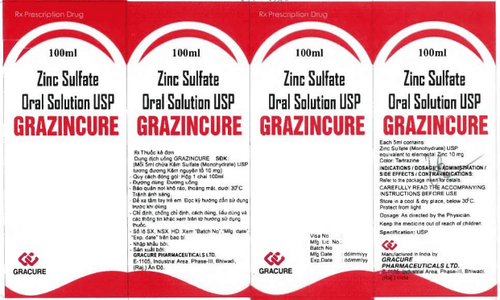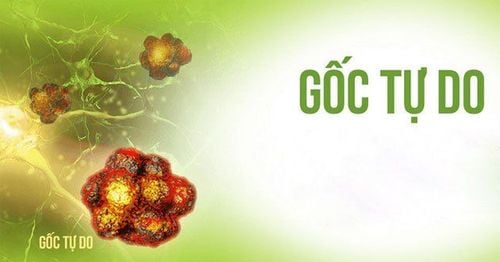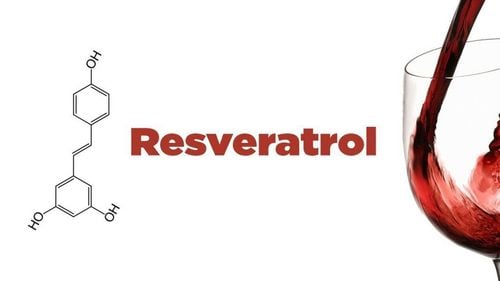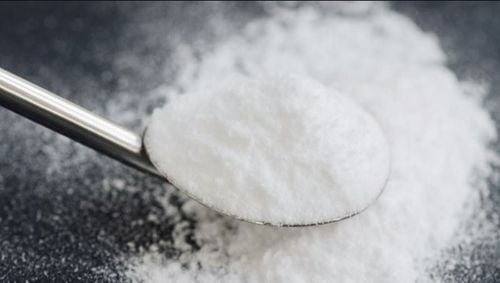This is an automatically translated article.
Vitamin C plays an important role in the formation of collagen, hormones, carnitine and amino acids. Besides, this is also an antioxidant that supports immune function and helps with iron absorption, so they are essential for wound healing and facilitating the recovery of burn damage. Vitamin C deficiency in children can have serious health effects, possibly even leading to scurvy.
1. Causes of vitamin C deficiency in children
Vitamin C plays an important role in the formation of collagen, hormones, carnitine and amino acids. Vitamin C is also an antioxidant that supports immune function and helps with iron absorption, besides it is necessary for wound healing and facilitating burn injury recovery. Vitamin C deficiency can also occur as part of malnutrition in children or as a result of an increased need for vitamin C, such as fever, inflammatory disorders especially diarrhea, and acid deficiency. gastric juice, smoking, hyperthyroidism, burns and protein deficiency, surgery, cold or heat stress, iron deficiency.Besides, vitamin C deficiency in children can be caused by improper food processing of parents. Because vitamin C in food is very easily destroyed by heat.
Watch now: What fruit has the most vitamin C?

Trẻ thiếu vitamin C có thể ảnh hưởng nghiêm trọng tới sức khỏe
2. What are the effects of vitamin C deficiency in children?
Children with vitamin C deficiency often have the most characteristic signs of musculoskeletal pain, petechiae or bruising, and bleeding gums. Other signs include hair loss, muscle atrophy, poor wound healing, and characteristic torsion. In addition, scurvy is the result of a diet lacking in vitamin C found in fresh fruits, vegetables, and juices that are naturally high in vitamin C.
Children with severe vitamin C deficiency can cause scurvy, a disorder characterized by bleeding and abnormal bone and dentin formation. Scurvy has symptoms related to defects in the connective tissues that develop several months after a child has a vitamin C deficiency such as frizzy hair, cystic kidney failure, and bleeding around the hair follicles. Gums can be swollen, spongy, purple, and bleed easily when a vitamin C deficiency is severe. This eventually leads to loose and dislodged teeth. Secondary infections may develop and wounds heal slowly and are prone to lacerations, and spontaneous bleeding may occur, especially conjunctival hemorrhages or ecchymosis of the lower extremities.
Other symptoms and signs include femoral neuralgia due to hemorrhage into the femoral cortex, which may coincide with deep vein thrombosis syndrome, bleeding, lower extremity edema, or effusion in the joints. In infants, symptoms include irritability, pain during movement, loss of appetite and growth retardation. In infants and young children, impaired bone growth can bleed and lead to anemia.
Watch now: Does Vitamin C help increase resistance?
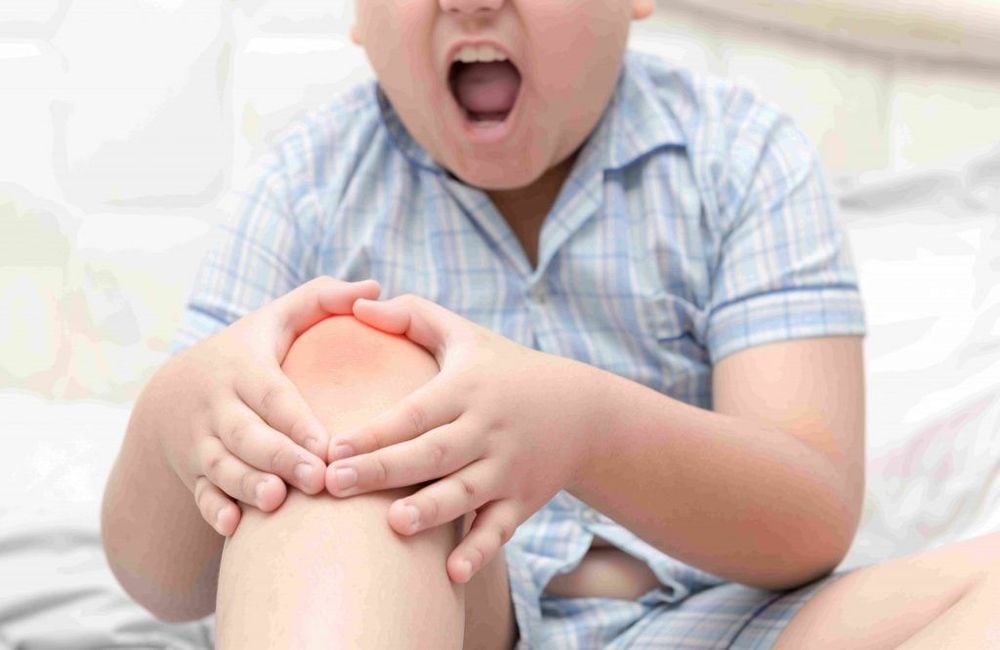
Trẻ bị thiếu vitamin C thường có những dấu hiệu đặc trưng nhất là đau cơ xương
3. Prevention of vitamin C deficiency in children
As recommended, the amount of vitamin C just 20mg/day is enough to prevent scurvy. For children with vitamin C deficiency, the minimum needs to vary from 50mg/day in infants to 110mg/day in adolescents.
In addition, vitamin C is very volatile when exposed to high temperature, air and sunlight. Therefore, parents need to pay attention to a number of problems in food processing as follows:
Choose fresh foods: Mothers need to choose fresh fruits and vegetables, not crushed or show signs of ripeness. It is best to eat raw fruits and vegetables that are not too processed to ensure less vitamin C loss. Avoid direct sunlight: Direct sunlight can cause vegetables to wilt and lose water, leading to loss of many vitamins including vitamin C. Therefore, foods rich in vitamin C should be stored in a cool environment and avoid storing at high temperatures. Wash vegetables before cutting: chopping and cutting vegetables and fruits and then washing them will cause some vitamin C to be washed away. Therefore, parents should wash their hands gently to avoid pinching or crushing food. Also, do not soak fruits and vegetables for a long time in water because vitamin C is very soluble in water. Accordingly, you should only soak for about 15-20 minutes. Limit cooking at high temperatures: vitamin C is more volatile at high temperatures, so you should limit cooking vegetables and tubers at high temperatures, but instead should steam, boil with less water (to avoid soluble vitamin C). in water) or use a microwave oven to process in a short time. Eat immediately after processing: Food should be used immediately after processing because the longer it is left, the lower the amount of vitamin C in the dish will decrease. The more times you reheat, the more vitamin C will be lost. In summary, vitamin C has an important role in the formation of collagen, hormones, carnitine and amino acids, is also an antioxidant that supports immune function and helps with iron absorption. Therefore, vitamin C deficiency in children can have serious health effects, possibly even leading to scurvy. Therefore, parents need to supplement vitamin C by providing adequate nutrition, fresh fruits and vegetables as well as properly processing food.
In addition, parents also need to pay attention to supplementing necessary micronutrients for children such as: Selenium, Chromium, Vitamins B1 and B6, Ginger, acerola fruit extract (vitamin C),... Especially zinc biology to improve taste, help children eat well, reach the correct height and weight, and exceed standards, have a good immune system, strengthen resistance to reduce minor illnesses and have fewer digestive problems.
For more nutritional knowledge and child care for each age, parents should regularly visit the website vimec.com and make an appointment with the leading doctors, pediatric and nutrition experts of the National General Hospital. Vinmec when needing advice on children's health.




